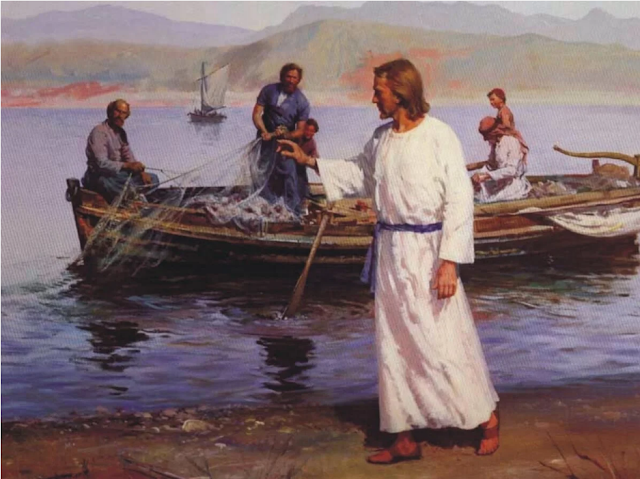The preaching and call of Jesus in Mark 1
The Sunday gospel lectionary for the Third Sunday before Advent at the end of this Year B is Mark 1.14-20, the beginning of Jesus' active ministry in Galilee following his baptism in the Jordan and testing in the wilderness. I have to say I have found what the lectionary does with the opening chapter of Mark's gospel is a bit odd, and would love to hear an explanation from anyone who understands it! (John 1–2 gets pretty messed around as well...) Advent 1 Mark 13.24-37
As we have previously seen in Mark, his accounts are often compressed, but also include some tantalising and unnecessary eye-witness details, and we will find the same here. This passage serves in all sorts of ways as an introduction to the ministry of Jesus in the northern region in and around Galilee, the first half of the gospel up to chapter 8, and which is in itself in two halves—in Galilee itself up to the central section of teaching in chapter 4, and then expanding more widely in chapters 5 to 8. Once we reach the northernmost point with the confession of Peter in Caesarea Philippi, then Mark has Jesus setting off on the long journey southward to his only recorded visit to Jerusalem. This is, of course, a narrative artifice; as an observant Jew, Jesus will have visited the city several times a year for the pilgrim festivals—as indeed the Fourth Gospel has him do. Functioning as an introduction, this passage introduces a number of key ideas about Jesus, his ministry, and his movement, none of which are explained, but which are expanded as the gospel progresses. So we find ourselves in the odd situation here of reading the introduction after we have read most of the rest of the book. Things which, for the first-time reader, might be puzzling and brief, are now for us summaries of what we have read already. The Fourth Gospel depicts continuity between the ministry of Jesus and John the Baptist, with their disciples both baptising at the same time in John 3.22–24, and Matthew uses the same language for the message of John and Jesus. But Mark suggests some discontinuity; breaking with his 'and...and' style of the previous verses, he uses the adversative de, 'but' or 'now'. John's ministry has been in the south, and out in the wilderness, so that people who wanted to see and hear him needed to make a special journey. By contrast, the ministry of Jesus here is in the north, and rather than waiting for the people to come to him, Jesus goes to the people, ministering in the more densely populated area by the lake. The summary reference to John being 'handed over' (paradidomi) understood to mean 'arrested' is, for a first time reader, simply puzzling; Mark is either assuming that his readers know the story already, or that they will be patient enough to wait for his explanation in chapter 6. Yet what has happened to John is what Jesus will both predict and experience for himself. The post The preaching and call of Jesus in Mark 1 first appeared on Psephizo. |























No comments:
Post a Comment